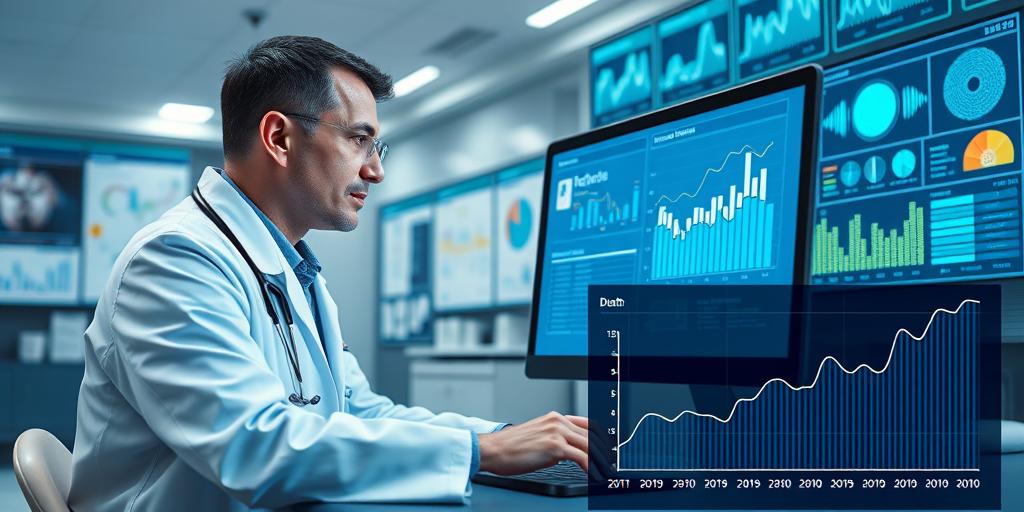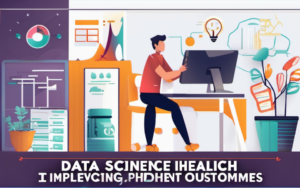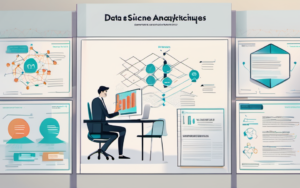Data science is no longer a futuristic concept; it’s a powerful force reshaping the healthcare landscape. By harnessing the power of data, healthcare professionals are gaining unprecedented insights into patient health, leading to more effective treatments, personalized care, and improved overall outcomes. The use of data science in healthcare, often referred to as “Data Science Healthcare,” is ushering in a new era of precision medicine and proactive healthcare.
Data Science in Healthcare: A Revolution in Progress
The Power of Data in Healthcare
The healthcare industry generates a vast amount of data, from patient records and medical imaging to lab results and insurance claims. This data holds a treasure trove of information about patient health, disease trends, treatment effectiveness, and more. Data science provides the tools to analyze this data, uncovering hidden patterns and insights that can revolutionize how healthcare is delivered.
Transforming Patient Care with Data Science
Data science is transforming healthcare by empowering healthcare professionals to make data-driven decisions. By analyzing patient data, healthcare providers can identify high-risk patients, predict disease outbreaks, optimize treatment plans, and personalize care for individual needs. This shift towards a data-driven approach is leading to more effective treatments, improved patient outcomes, and a more efficient healthcare system.
Real-World Examples of Data Science Impact
Predictive Analytics for Disease Prevention
Early Detection and Intervention
Data science is revolutionizing disease prevention by enabling early detection and intervention. Algorithms can analyze patient data to identify individuals at high risk for developing specific diseases. This allows healthcare providers to intervene early, potentially preventing serious complications and improving long-term health outcomes. For example, data science can help identify individuals at risk for heart disease by analyzing their genetic information, lifestyle factors, and medical history.
Personalized Risk Assessment
Data science plays a crucial role in personalized risk assessment, allowing healthcare providers to tailor preventive measures to individual needs. By analyzing a patient’s unique risk factors, healthcare providers can recommend specific lifestyle changes, screenings, or medications to reduce their risk of developing certain diseases.
Improving Treatment Outcomes
Optimizing Treatment Plans
Data science helps optimize treatment plans by analyzing patient data to identify the most effective treatments for specific conditions. This data-driven approach can help healthcare providers personalize treatment plans and avoid unnecessary treatments, leading to better patient outcomes and reduced healthcare costs. For example, data science can help identify patients who are more likely to respond to a particular medication or treatment regimen, enabling healthcare providers to choose the most effective options.
Personalized Medicine
Data science is driving the personalized medicine revolution, allowing healthcare providers to tailor treatments to individual patient needs. By analyzing a patient’s genetic makeup, lifestyle factors, and medical history, healthcare providers can identify the most effective treatments for their specific condition and predict their likelihood of success.
Streamlining Healthcare Operations
Efficient Resource Allocation
Data science can analyze healthcare data to identify areas where resources can be more efficiently allocated. By identifying patterns in patient demand and resource utilization, healthcare providers can optimize staffing levels, manage inventory, and allocate resources effectively.
Enhanced Patient Flow
Data science can improve patient flow by analyzing data on wait times, appointment scheduling, and patient throughput. This data can be used to optimize appointment scheduling, manage patient flow, and reduce wait times, leading to a more efficient and patient-friendly healthcare experience.
The Future of Data Science in Healthcare
Artificial Intelligence and Machine Learning
Artificial intelligence (AI) and machine learning (ML) are rapidly transforming healthcare, enabling computers to analyze vast amounts of data, identify patterns, and make predictions that can improve patient care. AI-powered tools can help diagnose diseases, personalize treatment plans, and predict patient outcomes.
Wearable Technology and Remote Monitoring
Wearable technology and remote monitoring are enabling healthcare providers to collect real-time data on patient health. This data can be used to monitor patient conditions, identify potential health issues, and provide personalized support and guidance. For example, wearable devices can track heart rate, sleep patterns, and activity levels, providing valuable insights into a patient’s overall health.
Data Security and Privacy
As healthcare increasingly relies on data, ensuring data security and privacy becomes paramount. Implementing robust data security measures and adhering to ethical guidelines is essential to protect patient privacy and maintain trust in the healthcare system.
A Data-Driven Future for Healthcare
Data science is revolutionizing healthcare, transforming how we diagnose, treat, and prevent diseases. By leveraging the power of data, healthcare professionals are gaining unprecedented insights into patient health, leading to more effective treatments, personalized care, and improved overall outcomes. As data science continues to evolve, we can expect even more innovative applications and breakthroughs in the future, paving the way for a healthier and more data-driven healthcare system.




